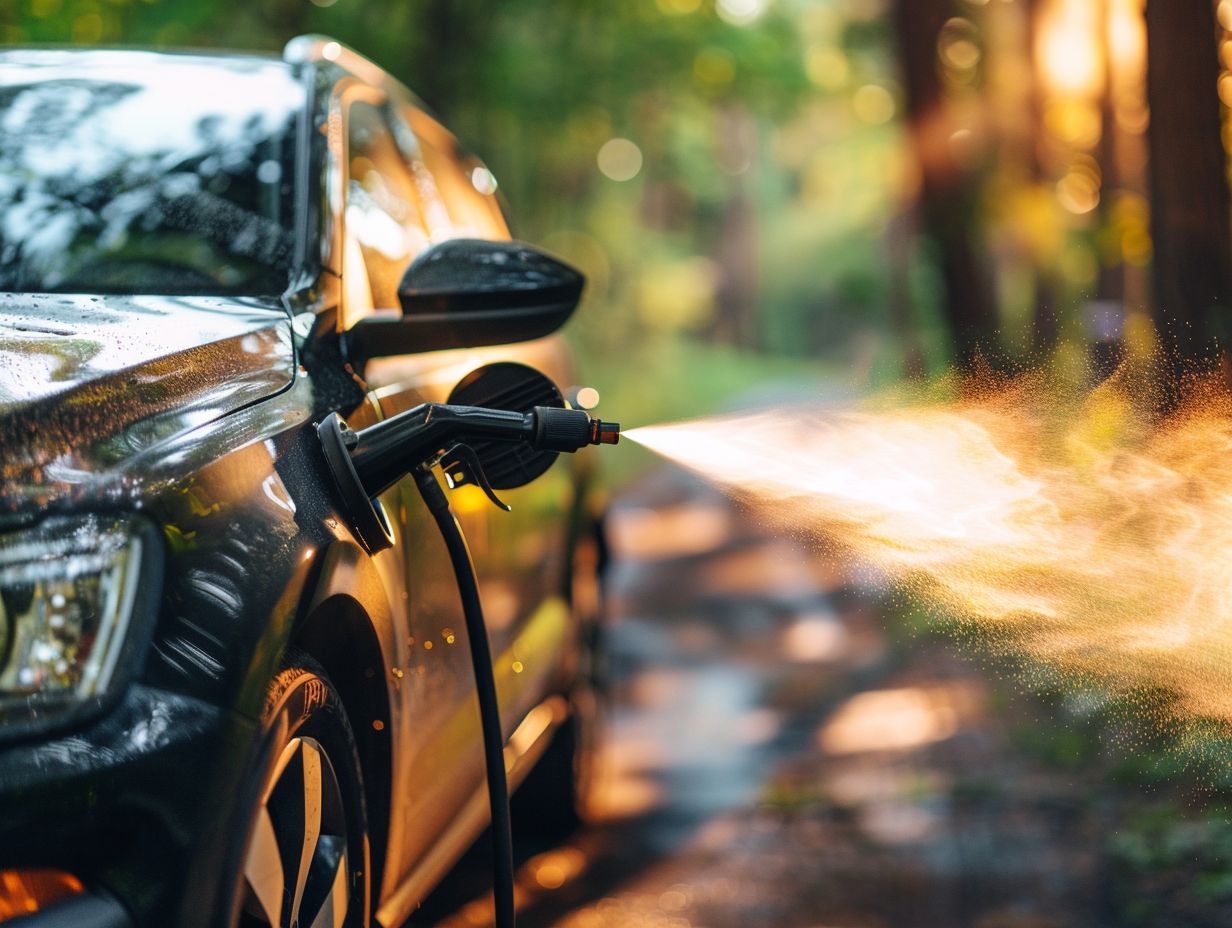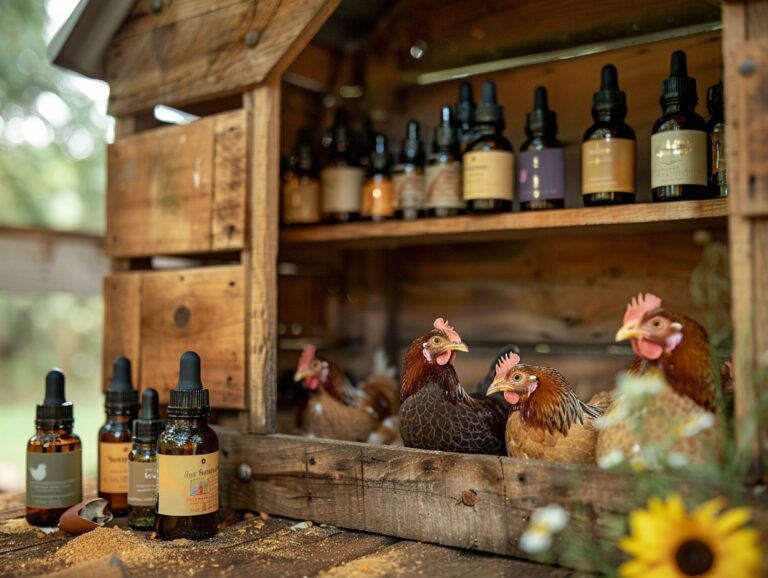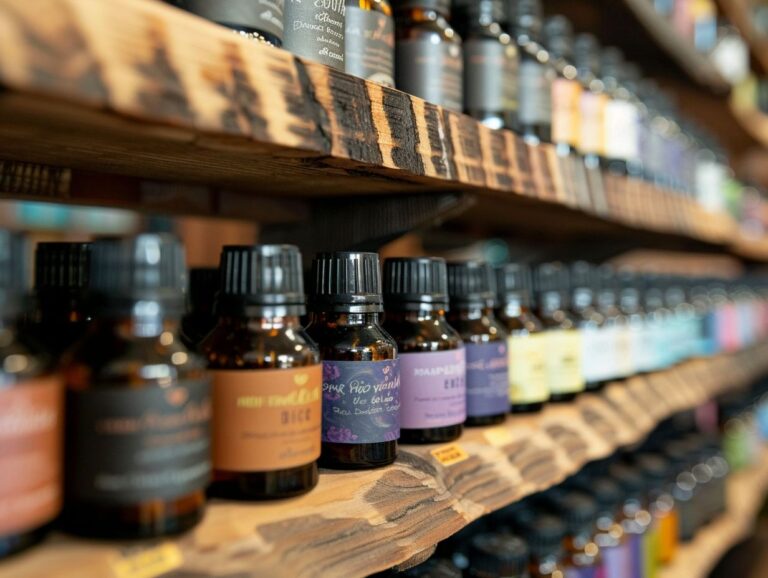Can Essential Oils Ruin Car Paint
Are you a fan of using essential oils for various purposes, including car care?
It’s important to be aware of their potential effects on car paint.
We explore the impact of essential oils on car paint, including which types can be damaging and how to prevent any potential harm.
We also look at alternatives for car care and safe ways to use essential oils on cars.
Stay tuned to learn more about this interesting topic!
Key Takeaways:
What are Essential Oils?
Essential oils are natural extracts derived from plants, known for their aromatic and therapeutic properties. These oils, such as lemon oil and peppermint oil, are often used for various therapeutic purposes due to their soothing effects on the mind and body.
These potent oils have been used for centuries in traditional medicine and aromatherapy practices. The origin of essential oils can be traced back to ancient civilizations like Egypt, where they were valued for their healing abilities. Today, these oils are widely appreciated for their versatility – from promoting relaxation and stress relief to enhancing focus and energy.
Regarding therapeutic applications, essential oils can be diffused, inhaled, applied topically, or even ingested under proper guidance. It’s essential to note that certain oils may interact with materials like plastics or synthetic fabrics, so it’s crucial to use them carefully and follow recommended dilution guidelines.
Can Essential Oils Be Harmful to Car Paint?
Using essential oils on car paint can sometimes lead to unintended damage and harm if not used properly. It’s important to understand the potential risks associated with applying certain essential oils to car surfaces.
One of the main factors that contribute to damage is the chemical composition of essential oils, which can vary widely between different types and brands. Some essential oils, if not diluted correctly, can be too harsh for car paint and cause discoloration or even corrosion over time. Improper application techniques such as using too much oil or not wiping it off properly can also lead to issues. This is why caution and care are crucial when using essential oils on your vehicle.
What Types of Essential Oils Can Damage Car Paint?
Certain types of essential oils, such as lemon grass and Neroli, have properties that can potentially damage car paint if not used correctly. These oils may contain components that react adversely with the chemicals in the paint and clearcoat.
For example, lemon grass oil contains citral, which is known for its solvent properties. When in contact with car paint, citral can break down the protective layers, leading to discoloration and dullness. On the other hand, Neroli oil, extracted from bitter orange blossoms, contains natural waxes that may leave residue on the paint surface, affecting its shine and finish. It’s crucial to dilute these oils adequately before using on the car’s exterior to minimize any potential harm. In scenarios where these oils are used undiluted or in excessive amounts, the risk of paint damage significantly increases.
How Do Essential Oils Damage Car Paint?
Essential oils can damage car paint through various mechanisms, such as the presence of acetone in concentrated forms or by reacting with hard water stains on the surface. These interactions can lead to discoloration, fading, or even deterioration of the paint layer.
When essential oils come into contact with car paint, it’s like a chemical dance that can have some not-so-pretty results. For instance, when acetone in certain oils meets the paint, it can cause it to break down, making it vulnerable to fading or peeling.
Hard water stains, on the other hand, team up with essential oils to form a tag team that your car’s paint may not appreciate. This combo can leave behind unsightly marks that are not just surface-level but can penetrate the paint, leading to long-term damage.
What Are the Signs of Essential Oil Damage on Car Paint?
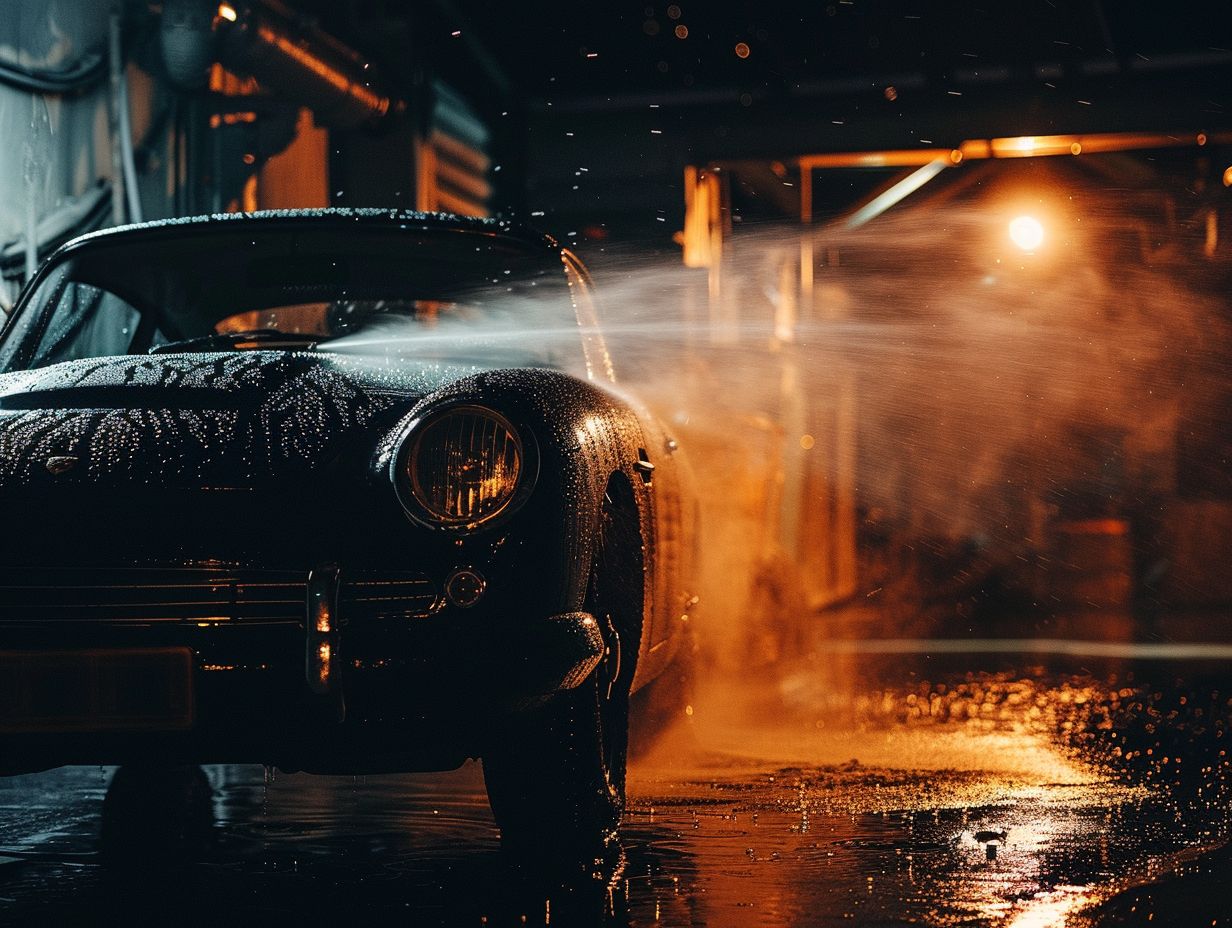
Another noticeable sign of damage caused by essential oils on car paint is the formation of streaks or spots that don’t wash off easily. These marks can be an early warning of underlying harm that needs immediate attention. If you observe a gummy or sticky residue on the paint surface, it could be a clear indicator of damage. Quick action is key when faced with these symptoms to prevent further deterioration of the car’s exterior.
How to Prevent Essential Oil Damage on Car Paint?
Preventing essential oil damage on car paint entails adopting proactive measures to safeguard the paintwork.
Avoid exposing the vehicle to high heat conditions that can exacerbate the effects of essential oils on the paint surface. When storing your essential oils, ensure they are properly sealed to prevent leaks and spills. Consider using protective covers or mats in areas where oils are frequently used to prevent accidental spills onto the car paint. Regularly washing and waxing your car can also create a barrier against the potential corrosive effects of essential oils.
What Precautions Should Be Taken When Using Essential Oils Near Cars?
When using essential oils near cars, it is essential to take precautionary measures to avoid potential harm to the vehicle’s surfaces. Be mindful of the types of oils used and their interactions with different materials, especially plastics commonly found in car components.
Opt for essential oils that are safe for use around vehicles, as some oils can cause damage or discoloration to car surfaces like dashboard plastics or leather seats. Avoid direct contact of concentrated oils with sensitive materials such as rubber seals or vinyl surfaces to prevent degradation. It’s advisable to dilute oils before applying them inside vehicles to minimize the risk of adverse reactions with the materials. Always test a small inconspicuous area before widespread application to ensure compatibility with the car’s interior.
How to Properly Clean Essential Oils Off of Car Paint?
Cleaning essential oils off car paint requires a delicate approach to avoid further damage. Use gentle cleaning agents that are safe for the paint and clearcoat, ensuring thorough removal of any oil residue without compromising the surface integrity.
One effective method is using a mild dish soap diluted in warm water to gently cleanse the affected area. Begin by soaking a soft microfiber cloth in the soapy solution and then carefully wipe the oil-stained area in a circular motion, applying light pressure. This approach helps lift the oils without scratching the paint.
Alternatively, you can create a natural cleaning solution by mixing equal parts water and white vinegar. Vinegar acts as a natural degreaser and can effectively break down oil residues without harming the paint.
What Are the Alternatives to Using Essential Oils for Car Care?
Exploring alternatives to essential oils for car care can offer effective solutions without the risks associated with oil-based products. Consider using specialized cleaning products designed to tackle common issues like hard water stains while preserving the integrity of the paintwork.
These specialized products are formulated with ingredients that target specific problems encountered during car maintenance, ensuring a thorough and efficient cleaning process.
By opting for alternatives tailored to address concerns such as hard water stains, owners can maintain the aesthetics of their vehicles without worrying about potential damage caused by incompatible substances.
Using these specific products not only simplifies the cleaning routine but also enhances the longevity and appearance of the car’s exterior, showcasing a well-maintained and pristine finish.
What Are the Best Cleaning Products for Car Paint?
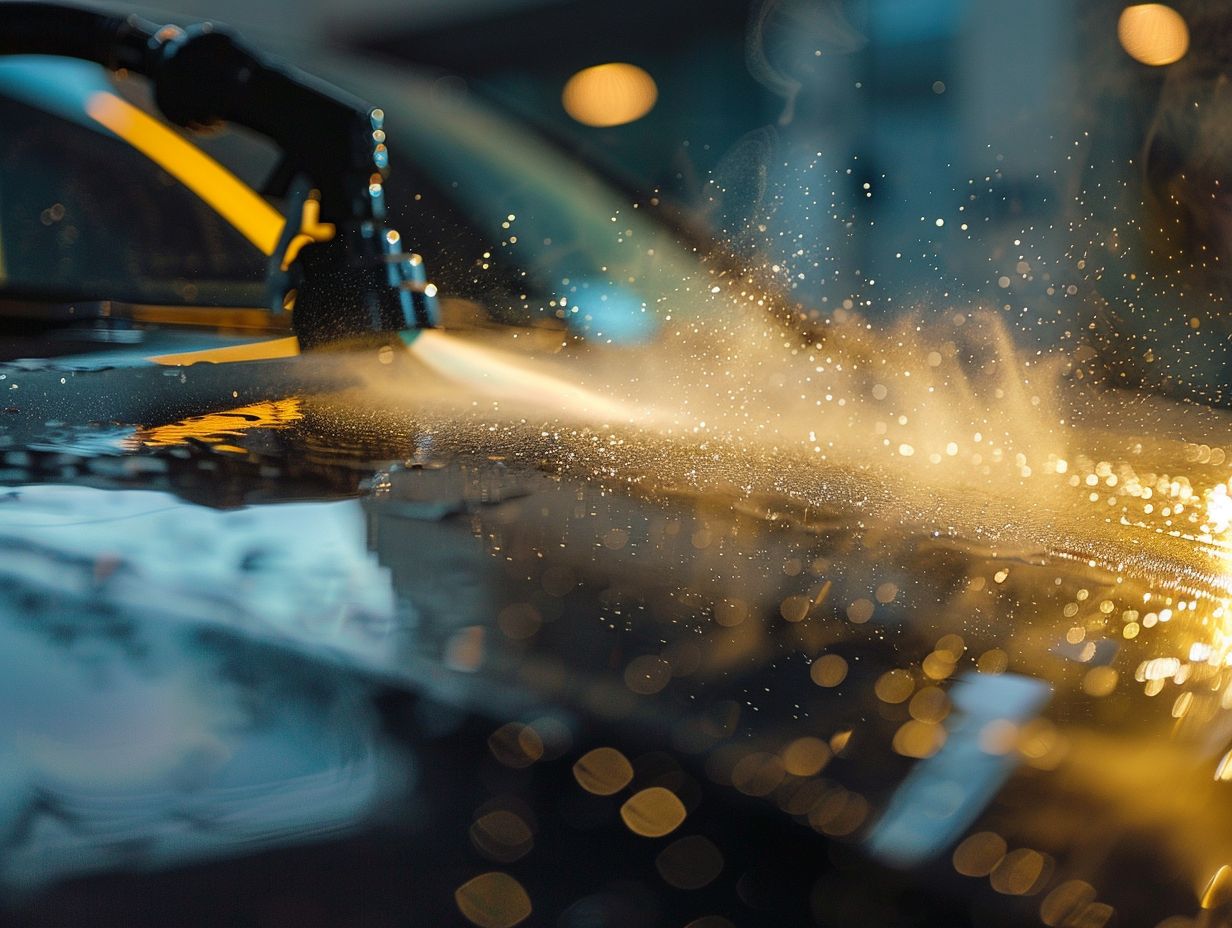
When choosing a cleaning product for your car, keep in mind that high levels of alcohol can strip the paint of its protective layer, leaving it vulnerable to damage from UV rays and other environmental factors. Excessively acidic products can eat away at the paint, leading to premature fading and corrosion.
Thus, it’s crucial to look for pH-balanced solutions that are specifically designed for automotive paint care. One such highly recommended product is a pH-neutral car shampoo that effectively lifts dirt and grime while maintaining the integrity of the paintwork.
How to Maintain Car Paint Without Using Essential Oils?
Maintaining car paint without relying on essential oils involves adopting a consistent maintenance routine tailored to preserve the paint’s luster and protect it from external contaminants. Regular cleaning using appropriate products and techniques can help safeguard the paintwork against deterioration.
To keep your car paint looking its best, remember that prevention is key. After cleaning, consider applying a quality car wax or sealant to provide an extra layer of protection against UV rays and environmental pollutants. Investing in a good quality microfiber cloth for drying and buffing can also prevent scratches and swirls on the surface. Parking in shaded areas whenever possible can help reduce exposure to harsh elements that can damage the paint over time. By incorporating these simple practices into your car care routine, you can ensure that your vehicle’s paint remains vibrant and glossy for years to come.
Can Essential Oils Have Any Benefits for Car Paint?
While essential oils carry potential risks for car paint, they may offer certain benefits when used appropriately, such as enhancing the shine and clarity of glass surfaces. The judicious application of oils on specific areas can yield positive effects on car aesthetics.
Regarding utilizing essential oils for car paint, moderation is key to avoid any adverse effects. One of the significant advantages lies in their ability to create a protective barrier against environmental factors, such as UV rays and pollutants. This added layer not only helps maintain the paint’s integrity but also adds a subtle sheen.
Particularly on glass surfaces, essential oils can work wonders by reducing streaking and enhancing the overall transparency, resulting in a clearer view through your car windows. By selectively applying oils to areas prone to oxidation or corrosion, one can prolong the lifespan of the paint and prevent potential damage.
What Are the Other Uses of Essential Oils for Cars?
Beyond car paint maintenance, essential oils find alternative applications in areas like the engine bay for mitigating odors and promoting a pleasant interior ambiance. Their aromatic properties can help freshen up enclosed spaces within the vehicle.
Regarding tackling unpleasant smells in the engine bay, drops of lemon essential oil mixed with water sprayed onto the surface can work wonders. Not only does it neutralize odors, but it also leaves a refreshing citrus scent behind.
For enhancing the interior scent of your car, lavender essential oil can be diffused through the air vents or mixed with baking soda and sprinkled on the carpets before vacuuming. The calming aroma of lavender can create a serene driving environment.
From combating musty odors to uplifting the mood during long drives, the versatility of essential oils in car care goes far beyond just aesthetics.
Are There Any Safe Ways to Use Essential Oils on Cars?
Implementing safe practices for using essential oils on cars involves considerations like testing oils on inconspicuous areas and avoiding their application on rental car surfaces. By exercising caution and moderation, it is possible to harness the benefits of oils without risking damage to vehicle finishes.
Regarding incorporating essential oils into your car maintenance routine, it’s essential to remember that a little goes a long way. Diluting oils with a carrier like water or a neutral base can help prevent any adverse reactions with car surfaces. Opting for milder scents can minimize the risk of overpowering odors in your vehicle.
Another pro tip is to utilize oil diffusers specially designed for cars to evenly distribute the scents without direct contact with surfaces. This not only ensures a longer-lasting fragrance but also reduces the chances of any potential staining or discoloration.
Conclusion
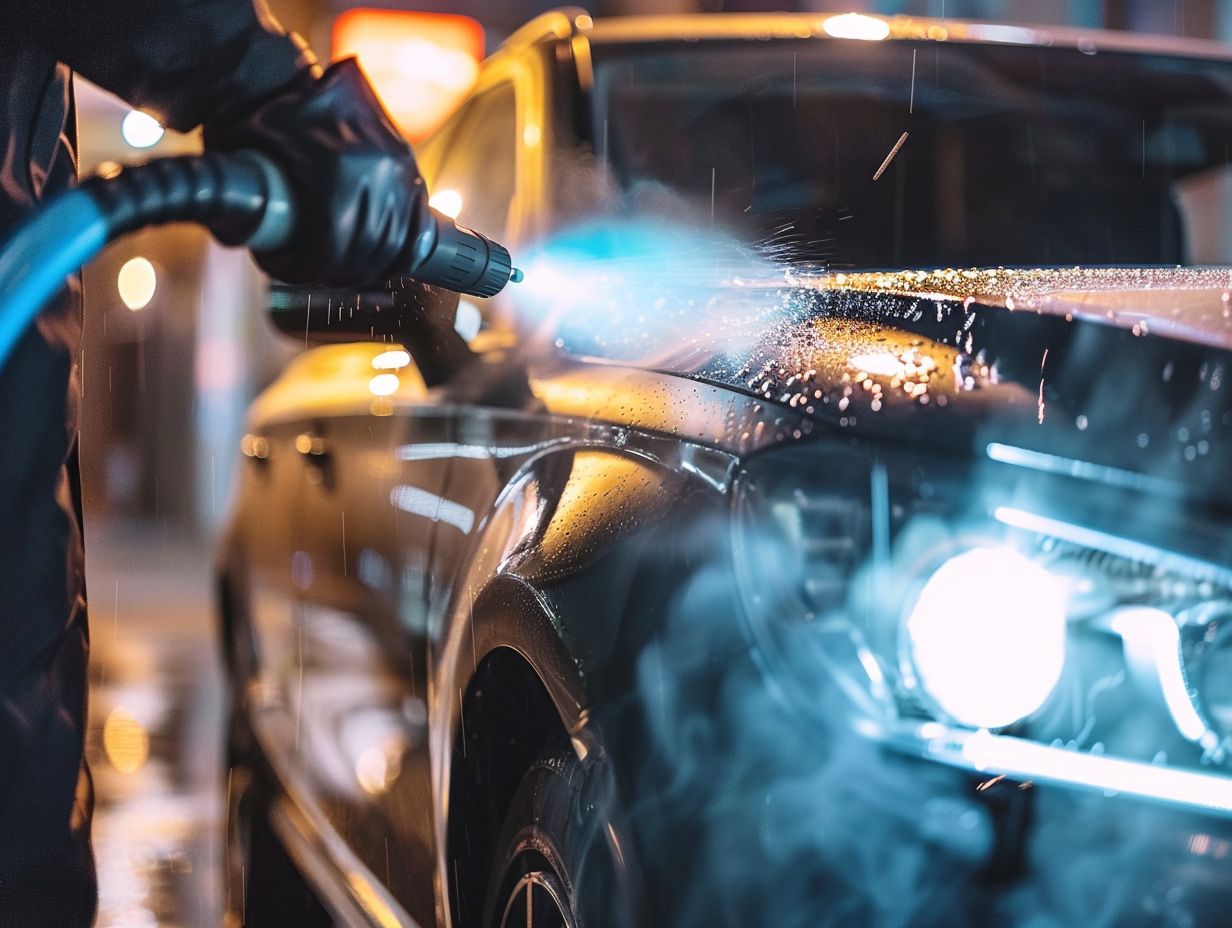
Essential oils offer a natural and eco-friendly solution for various car care needs. They can be effectively used for cleaning, deodorizing, and even polishing different car surfaces, inside and out.
- When selecting essential oils, it’s crucial to research their properties and potential effects on different materials used in car construction.
- Regularly using essential oils in appropriate dilutions can help maintain the shine of the car’s paint and prevent corrosion.
- Vigilance in protecting car surfaces is crucial, especially in parking lots where exposure to environmental contaminants is high.
Frequently Asked Questions
Can essential oils ruin car paint?
No, essential oils cannot ruin car paint. They are natural products and do not contain any harsh chemicals that could damage the paint.
How can essential oils affect car paint?
Essential oils can potentially leave a residue on the car’s surface, making it appear dull or greasy. However, this can easily be removed with a gentle cleaner.
Are there any specific essential oils that are harmful to car paint?
No, all essential oils are safe to use on car paint. However, it is important to dilute them properly before applying to avoid any potential issues.
Can essential oils be used to clean car paint?
Yes, essential oils can be used as a natural and gentle cleaner for car paint. However, it is important to dilute them properly and use a soft cloth to avoid any potential damage.
Is there a risk of essential oils causing discoloration on car paint?
No, essential oils will not cause discoloration on car paint. However, it is important to properly dilute them and test on a small, inconspicuous area before using on the entire car.
How often should essential oils be used on car paint?
It is recommended to use essential oils on car paint sparingly, as needed. Overuse can potentially lead to a buildup of residue and affect the appearance of the paint.

